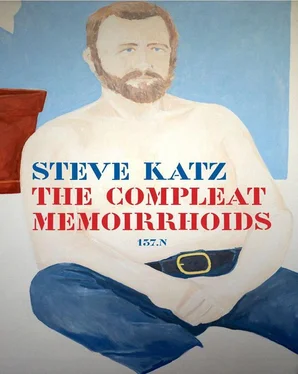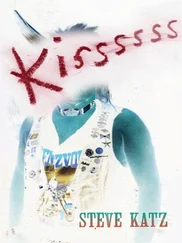Ray Gangi and I played tennis in Riverside Park on the asphalt courts near the lighthouse and the abutment of the great George Washington Bridge. These were built by the city many years earlier, and were free to the public, but they were poorly maintained, irregular, cracked, dotted with weeds. Ray and I had an agenda. We were going to practice tennis until both of us were good enough to make the tennis team in High School. We were too short and round to play basketball, and weren’t good enough to go out for baseball. We thought no one played tennis, and that was true in our lower middle-class Washington Heights world. We were members of the New York Bullets Social and Athletic Club. We let girls wear our purple and gold reversible team jackets. What we weren’t aware of was that among the more affluent middle-class, and the wealthy, there were worlds of smooth clay courts, some of them indoors. These kids could practice all year, and not just practice, but take expensive lessons from tennis pros at exclusive clubs.
We played three or four times a week, on courts that were like a separate opponent, making the ball bounce erratically, at random. It could go left or right, could flatten out, could skip, could fly. On a June 6, one of the days of our adolescence, we started a volley that will never be forgotten. We opened with a forehand lob from Gangi to myself, which clipped the top of the net. Gangi got it to my backhand, which was my weakness. I retreated and connected with the sweet spot of my Jack Kramer laminated wood racket, a cudgel of a racket, picture of Jack Kramer on the throat, made by Spalding. Sometimes I slept with it. I sent a backhand smash down the line, and Gangi lunged and returned it. I sent back a soft forehand, and we settled down to exchanging forehands and backhands from the baseline. After this volley went on for more than an hour we realized something special was happening. Our strokes were unorthodox, but we were returning everything. I hit a high lob, and caught his eye. He shrugged and returned it to my forehand. It was as if the rackets were swinging themselves. I felt like my body was light and mobile, moving on its own, just a vehicle for what was happening. We kept going, trying and making shots we’d never made before — smashes backhand and forehand, drop shots, skip shots, righthand and lefthand spins, volleys at the net left and right, stop shots, high spinning bounces, shots neither of us had ever seen before. The George Washington Bridge, graceful as it was before they added the lower roadway, loomed out over us like a swan. Dark currents of the mighty Hudson rolled by the Palisade cliffs on the Jersey banks, the tar-stained rocks on our side. We went on hitting the ball, returning the ball, as evening came and the lights turned on. We volleyed into the night.
“Do you want to stop now?” I asked. It was after midnight.
“Let’s wait till one of us misses,” Gangi said. He tried to send a lob over my head into the darkness, but the racket pulled me into the air and I dropped a shot to his backhand, near the baseline. I thought that would be it. He barely got to it, and made the return.
The sky pinked in the East. I’d never been up for dawn before. If it wouldn’t have interrupted the volley, I might have sat on a bench to watch the light change. By noon we got our fresh wind and started smashing the ball again. We were young. Our energies were limitless. And we never missed.
“Oh no. Look out,” Gangi warned. It was The Henchies swaggering down the path. It looked like the end of our volley. They were our nemesis, a gang from 177th Street between St. Nicholas and Amsterdam. The Bullets were peaceable. The Henchies were prone to violence, unprovoked, just for the meanness of it. We went on volleying. They watched from the other side of the chain link fence. Soon they started to laugh. “A pussy game,” one of them shouted. We didn’t dare miss. They shook the fence a little, then they left. Gangi sighed so hard he almost missed an easy forehand. We went on playing, better and better. Tennis was our ticket to tomorrow. When Gangi’s mother arrived he started to sweat.
“I’ve been so worried about you.” She chased him around the court, throwing scraps of sausage into his mouth.
My mother came soon after. These women rarely left their kitchens. I don’t know what intuition let them know where to find us, or how they got the courage to make the trek down to the river. “Today you were going to wash the floor.” That was one of my chores, keeping the kitchen linoleum clean. “The company you keep,” she said. I don’t know what she meant. She knew Gangi, and she liked him. She chased me around the court, splashing soupspoons of chicken soup at my mouth. She almost made me miss.
“I curse the day I bought you that tennis racket,” my mom said.
“I bought it myself, with my own money.” I hit a gorgeous crosscourt backhand volley.
“I shouldn’t have let you do that.” I returned both the matzo ball she threw at me, and the tennis ball to Gangi’s forehand.
“You two come home right away,” the women commanded as they left.
“As soon as we finish this volley,” we said in unison.
My father, who died when I was very young, was a great tennis player, I remembered. He was a New York City doubles champion. That was why I sometimes wept when I played. What could I have learned from my father?
Refreshed by the food we went on volleying through the day, and into the next night. Casual strollers stopped to watch, and then moved on. We played on. We couldn’t miss. No one understood the extent and scope of our accomplishment. The weekend had begun. Other players came to use the other courts, and they frequently stopped to watch our brilliant volley. No winner, no loser. Towards evening the storm clouds started their march down the Hudson Valley. We’d better get home, we both said. Gangi hit the next ball over the chain link towards the river. We left to the roar of thunder down the valley. With reluctance we stopped our famous volley. We weren’t tired. We were young. Everyone was leaving the river. Lightning hit the Palisades. If we hadn’t stopped then, I’m sure we would still be volleying today.
In the Managua airport my attention sticks to a poster that reads NICARAGUA: A Diner’s Club Country , printed over a photo of a windsurfer on a beach. We have come by invitation of Daniel Ortega’s government as writers asked to witness the progress of his government and the atrocities committed by the US supported Contras. Chuck Wachtel, Lawrence Shainberg, Nathaniel Tarn, Marvin Bell, myself and several others are billeted in one of the dictator Somoza’s mansions, appropriated by the Sandinistas. Managua is a ghost city, never rebuilt after the earthquake of 1972. Often the directions and addresses you get are virtual sites, like “by the lamppost, where the Post Office used to be, across the boulevard from what was The Candy Disco (still flattened).”
Our guides load us into a small bus every day and drive us to a different town. We go to Matagalpa first, where the children in a school read us their poems. Everyone in Nicaragua writes poetry. The great poet Ruben Dario, father of Modernism, is Nicaragua’s pride, born in Metapa, citizen of Leon, his favorite city, where he lived much of his life. He died in 1916 and is buried there in the Leon cathedral. The guides lead us into a large grey shed where we are seated on the benches of a small grandstand. The walls are chipboard, the roof made of translucent orange corrugated plastic. A file of women marches in and lines up facing us. One by one they step forward into the orange light and tell us a story about their husbands, sons, daughters, uncles tortured and killed by the Contras. My eyes well with tears. I fall for all of it. These poor suffering people. “I can’t stand this propaganda,” Nathaniel Tarn says. He is way more mature and experienced than I, his grown-up to my infant. I know he sees it more accurately than I, but I can’t keep back the tears. Even if they are assembled for us as a propaganda thrust, there is some basis in truth. A woman grabs my arm. “How can you help us,” she shakes me. “If you’re not even taking notes?” I’m a writer and I didn’t even carry a pencil. I am embarrassed to look at her, and move away.
Читать дальше












